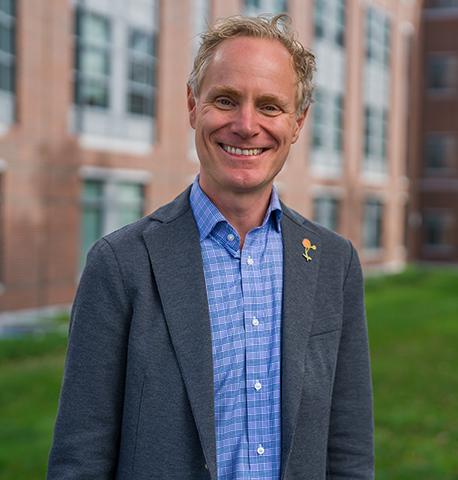
Welcome to the College of Life Sciences and Agriculture.
I want to personally invite you into our community of scholars and scientists, experts and advocates, educators and explorers, achievers and doers.
We are all united by a drive to protect and improve our world, be it through advancing science that protects human health, developing sustainable agricultural practices that safely feed our hungry planet, forging a deeper understanding of the balance that exists within the planet’s ecosystems and innovating better ways to protect it, or expanding partnership networks that extend the reach and impact of our work.
COLSA is one of five colleges at the University of New Hampshire and is made up of five departments:
- Agriculture, Nutrition and Food Systems
- Biological Sciences
- Molecular, Cellular, and Biomedical Sciences
- Natural Resources and the Environment
- Thompson School of Applied Science
Together, our departments offer 27 majors and 27 minors that study the building blocks of life, ranging from individual microbes to entire landscapes. Our approach to research and teaching is interdisciplinary, which means our faculty are often collaborating, sharing knowledge and looking for new, sustainable ways to make the world a healthier and more productive place for all. Our discoveries continue to lead efforts to address food insecurity, carbon balance management, disease prevention, ecosystem function and the very foundations of life.
Students here learn from faculty who are leaders in their fields, have opportunities to contribute to important research that is reshaping how we see — and take care of — our world, and make connections that will lay the foundation for a lifetime of personal and professional success.
As the dean of a college that is part of New Hampshire’s public flagship university, I also honor the natural and human history of the Granite State, which includes the traditional lands of the Abenaki, Pennacook, and Wabanaki peoples, who for millennia provided stewardship for the state’s plants, animals, soil, and water. In recognizing their connection to this land, we are reminded that we have a responsibility to prioritize diversity and provide an inclusive and equitable place of work and study for all.
COLSA is the place to discover and apply the science of life. Please visit, virtually or in-person — we are eager to meet you and learn how we can work together to address the grand challenges of our generation. The need for our teaching, research, and outreach and our skilled and prepared students and alumni has never been more urgent.
Anthony S. Davis, PhD
Dean, College of Life Sciences and Agriculture